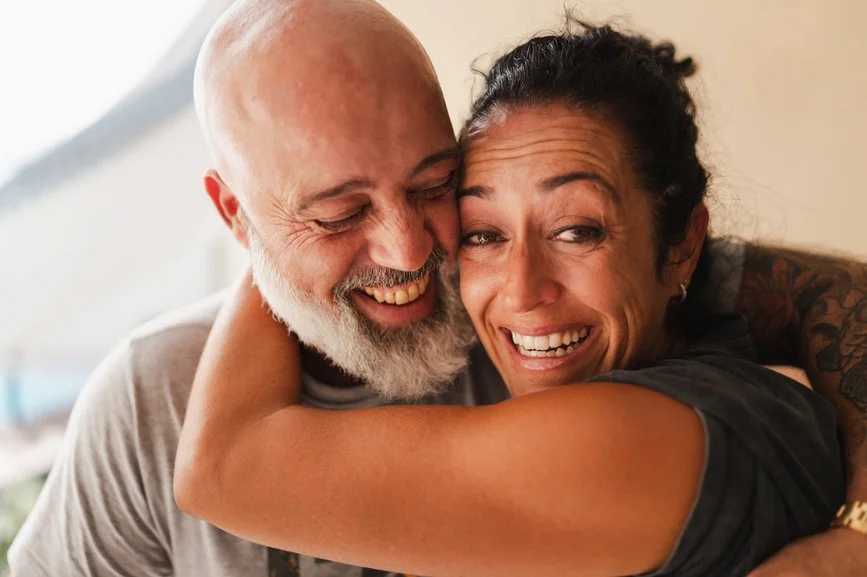You found out about the affair weeks ago. Maybe months. You thought you'd be feeling better by now. Instead, you're still waking up at 3 a.m. with your heart pounding. You're still replaying the same images in your head. You're still getting blindsided by waves of rage or grief when you least expect them.
You're starting to wonder if something is wrong with you.
There isn't. What you're experiencing has a name: betrayal trauma. And understanding it—really understanding it—is the first step toward healing.
Betrayal Trauma Is Real
For a long time, the pain of infidelity was dismissed as jealousy, insecurity, or an inability to "let go." Partners who struggled months after discovery were told they were dwelling on the past. They were made to feel like their ongoing pain was a choice—or a character flaw.
We now know better.
Research has shown that betrayal by an intimate partner can produce symptoms nearly identical to post-traumatic stress disorder. A 2021 study published in Stress and Health found that between 30% and 60% of betrayed individuals experience symptoms of PTSD, depression, and anxiety at clinically significant levels. Another study of young adults found that 45% of those who experienced a partner's infidelity met the threshold for probable PTSD. And research reviewed in the International Journal of Environmental Research and Public Health confirmed that infidelity victims often meet all the diagnostic criteria for PTSD—except for the technical definition of the triggering event.
The intrusive thoughts. The hypervigilance. The nightmares. The emotional flooding that comes out of nowhere. These aren't signs of weakness or an overreaction. They're the brain's natural response to a profound threat.
Because that's what an affair is to your nervous system: a threat. Not just to the relationship, but to your sense of safety, your identity, your understanding of reality. Everything you thought you knew has been destabilized. Your brain is responding accordingly.
What Betrayal Trauma Looks Like
If you're the betrayed partner, some of this will sound familiar:
Intrusive thoughts and images. You can't stop your mind from going to the affair. You picture them together. You replay conversations, looking for signs you missed. These thoughts intrude when you're trying to work, trying to sleep, trying to have a normal conversation. You didn't invite them. You can't make them stop.
Hypervigilance. You're on high alert all the time. You notice every time your partner picks up their phone. You track their mood, their schedule, their word choices—looking for signs of deception. Your body is braced for the next blow, even when there's no immediate threat.
Triggers. A song, a restaurant, a name, a time of day—anything associated with the affair can send you into a spiral. The trigger might seem small to an outsider, but to you it's a portal back into the worst moment of your life.
Emotional flooding. One minute you're fine. The next minute you're sobbing, or raging, or completely numb. The emotions feel too big to contain. They don't follow logic or schedules.
Physical symptoms. Sleep disruption. Appetite changes. Nausea. Chest tightness. Difficulty concentrating. Your body is carrying this trauma, not just your mind.
A shattered sense of reality. You thought you knew your partner. You thought you knew your relationship. Now you don't know what was real. This disorientation—the feeling that you can't trust your own perceptions—is one of the most destabilizing parts of betrayal trauma.
If you're experiencing these things, you're not crazy. You're not weak. You're having a normal response to an abnormal situation.
Why "Just Get Over It" Doesn't Work
One of the most damaging things a betrayed partner hears—from their spouse, from family, sometimes from well-meaning friends—is some version of: "It's been three months. You need to move on."
This fundamentally misunderstands what betrayal trauma is.
You can't think your way out of trauma. You can't decide to stop having intrusive thoughts. You can't willpower your nervous system into feeling safe when it doesn't. Telling someone with betrayal trauma to "just get over it" is like telling someone with a broken leg to just walk it off.
Healing from betrayal trauma takes time—typically far longer than most people expect. Research suggests that recovery from infidelity takes an average of two to five years, not two to five months. And that's with both partners actively doing the work.
When the unfaithful partner pressures their spouse to hurry up and heal, it usually backfires. The betrayed partner feels unheard, dismissed, and alone in their pain. The message they receive is: your trauma is inconvenient for me. That doesn't create safety. It creates more distance.
What the Unfaithful Partner Needs to Understand
If you're the one who had the affair, watching your partner in this much pain is agonizing. You may feel helpless, guilty, frustrated, or desperate to fix it. You may be tempted to say things like:
"I've apologized a hundred times—what more do you want?" "Why do you keep bringing it up?" "I thought we were past this."
Here's what you need to understand: your partner isn't choosing to feel this way. They're not punishing you by continuing to hurt. Their brain has been rewired by trauma, and it's going to take sustained effort over a long period of time to help it feel safe again.
Your job right now is not to fix their pain or make it go away faster. Your job is to:
Be patient. The timeline for healing is not up to you. Pressuring your partner to "move on" will only delay the process.
Stay present. When your partner is triggered or flooded, your instinct may be to withdraw, get defensive, or shut down. They need you to stay. Not to fix it—just to be there.
Tolerate the discomfort. Hearing about your partner's pain is hard. Answering the same questions again is hard. Sitting with their anger is hard. But avoiding these moments doesn't make the trauma heal—it makes your partner feel more alone.
Take responsibility without collapsing. There's a difference between accountability and shame spirals. Your partner needs to see that you understand the gravity of what happened and that you're committed to repair. They don't need you to fall apart in a way that makes them feel like they have to take care of you.
Be consistent. Trust isn't rebuilt with a single conversation or a grand gesture. It's rebuilt through hundreds of small, consistent actions over time. Showing up. Being transparent. Doing what you said you'd do.
This Isn't About Being Strong or Weak
Betrayal trauma doesn't discriminate. It affects people who seemed unshakeable. It affects people who never imagined they'd feel this undone by anything. The strength of your reaction isn't a measure of your character—it's a measure of how much the relationship mattered to you and how deep the violation went.
If anything, the intensity of betrayal trauma is a sign of healthy attachment. You bonded deeply with your partner. You trusted them with your sense of safety. When that trust was shattered, your entire attachment system went into crisis. That's not a flaw. That's how attachment works.
Healing Is Possible—But It Takes the Right Support
Here's the part that offers hope: couples do recover from this. Not all of them, but many. Relationships that have been devastated by infidelity can be rebuilt into something stronger and more honest than before.
But it doesn't happen by accident. It doesn't happen by waiting for time to pass. And it rarely happens without help.
Healing from betrayal trauma requires:
Understanding what you're dealing with. That's what this post is about. Naming the trauma, recognizing the symptoms, and understanding that they're normal is the first step.
The right kind of support. Friends and family often don't know how to help—or they give advice that makes things worse. Professional guidance, whether through therapy or a structured program, can make the difference between spinning in circles and actually moving forward.
Both partners doing the work. This isn't something the betrayed partner heals from while the unfaithful partner waits. Repair requires both people to show up consistently, even when it's hard.
Time. Real time. Not the timeline your family thinks is reasonable or the timeline you wish it would be. The timeline your nervous system actually needs.
You Don't Have to Figure This Out Alone
If you're in the early days or weeks after discovering an affair, everything probably feels impossible right now. You might not know if your relationship can survive this. You might not even know if you want it to.
That's okay. You don't have to have the answers today.
What you do need is support. Structure. Guidance from people who understand what you're going through and can help you navigate it without making things worse.
If you're both willing to try—if you're both committed to doing the hard work of repair—there's a path forward. It won't be quick. It won't be easy. But it exists.
And you don't have to walk it alone.
If you're looking for support in the early stages of affair recovery, Together Stronger is an 8-week program designed specifically for couples navigating betrayal trauma. It combines live group sessions, guided coursework, and expert support to help you move through this—together. Learn more at https://www.heartfeltcounselingmn.com/together-stronger-infidelity-coaching











